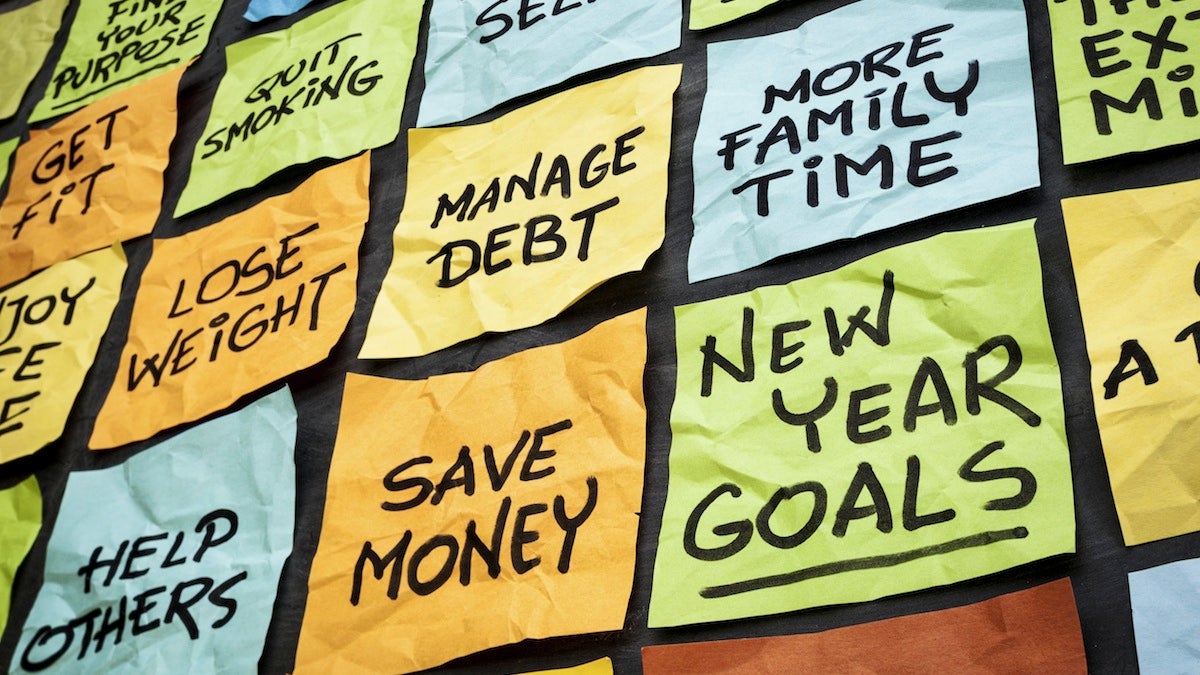Challenge yourself, avoid ‘food fads,’ take action to reach 2014 goals, say NW Philly experts
 New Year's goals image via ShutterStock " title="shutterstock_168343358" width="1" height="1"/>
New Year's goals image via ShutterStock " title="shutterstock_168343358" width="1" height="1"/>
(New Year's goals image via ShutterStock
With the arrival of 2014, many of us turn towards a New Year’s resolutions list to start the year off with our best intentions.
NewsWorks spoke with counseling, nutrition and fitness experts from Northwest Philadelphia to help readers get a fresh start on some of the more common New Year’s resolutions.
Strategies for change
Deb Owens, a licensed professional counselor with a private counseling practice in Chestnut Hill, says if you’re looking to make a change in the New Year, start by contemplating the pros and cons.
“Listing reasons to change as well as reasons not to change may be a useful process,” said Owens. “Consider cultivating a sense of hope as you seek out input from others that have overcome the same or similar problem.”
She says preparation, such as gathering information about each resolution, is one way to approach the “big list.”
“Review obstacles. Find ways to go around them,” said Owens. “Challenge excuses such as not having time or financial resources to get the help you need by honestly reviewing what your current behavior costs you in time, money and consequences related to your health, work, relationships or well-being.”
She says tackling a resolutions list should include action and maintenance.
“Take any kind of action, even a small step in the right direction can lead to another,” said Owens. “Once progress is made, be persistent and diligent. Continue to do more of what works and less of what does not help.”
Owens also advises to pay attention to relapse triggers and avoid situations that have led to a return to unhealthy behaviors in the past
Sticking to a balanced diet
When it comes to what should be on your plate in the New Year, Sophia Kleiber, director of nutrition services at Roxborough Memorial Hospital, says to be realistic.
“Sometimes people make resolutions that aren’t always reasonable,” said Kleiber, a registered dietitian. “People talk about purging their fridge, but it’s not really financially feasible to just throw your groceries away.”
Instead, Kleiber says to simply start with the basics.
“Make your goals reasonable and doable,” said Kleiber. “If you don’t know where to start, try ChooseMyPlate.gov. It’s a great tool to help put together a healthy diet with more fruits and vegetables.”
ChooseMyPlate.gov, part of the Center for Nutrition Policy and Promotion, provides free dietary guidance including daily food plans, sample menus, recipes and ways to stay healthy on a budget.
When it comes to the trending gluten-free diet, Kleiber says she sees it as a food fad.
“The thing with gluten-free is that it’s a necessary medical diet for some people, so when people use it as a weight-loss diet, they’re missing the actual goal of the diet itself,” said Kleiber. “Gluten-free doesn’t necessarily equal a healthy diet.”
Instead of following a “food fad,” she recommends people avoid overly processed foods and genetically modified organisms (GMO’s).
“It’s a great place to start,” said Kleiber. “I always say if you can’t pronounce it, don’t eat it.”
Her number one thing to avoid in a 2014 diet?
“Soda,” said Klieber, “diet or regular.”
Find your fitness path
To begin a fitness resolution, Julia Helstrom, D.O. and co-owner of Flat Rock Health in Manayunk, recommends breaking the goal down into smaller steps.
“Don’t just say ‘I want to lose 10 pounds,’ map out a plan,” said Helstrom. “I also recommend making a deadline for yourself.”
Another part of motivation, she says, is to give yourself a reward.
“It shouldn’t be for someone else, just for you,” said Helstrom, “and it’s not allowed to be food. It could be something like going for a hike, seeing a friend from college, whatever motivates you.”
A calendar appointment for a workout is another way she advises to track resolutions.
“Put it on your calendar and don’t cancel it,” said Helstrom.
Her top exercise for fitness newbies?
“Walking,” said Helstrom. “It’s cheap, easy and anyone can do it. If you’re a coach potato or have a sedentary job, start out with 15 minutes a week, twice a week. Then add another day each week.”
She says some simple breathing exercises and yoga could lead you to a better sense of mind, body and spirit in 2014.
“Try meditating by just taking a couple of moments to reflect to yourself,” said Helstrom. “Stress can really impact your physical health, so it’s important to find a moment in your day, even if it’s on an elevator or at a red light, and do some breathing exercises.”
WHYY is your source for fact-based, in-depth journalism and information. As a nonprofit organization, we rely on financial support from readers like you. Please give today.




